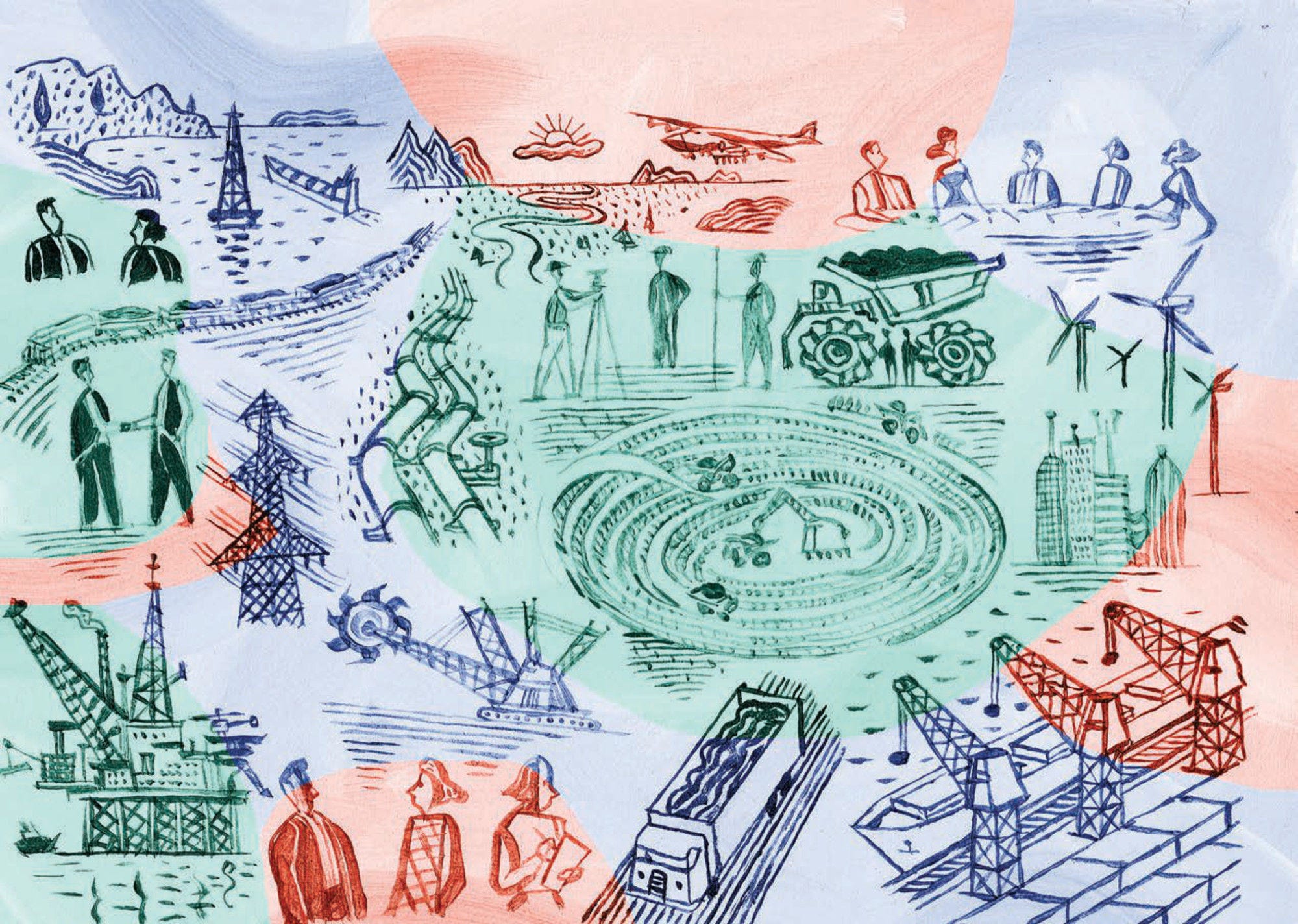This report identifies 12 recommendations that can assist the municipality of Outokumpu and the region of North Karelia in Finland to become key players in the national mining strategy and attain sustainable economic growth by: focusing on mobilising the potential of the local mining value chain, diversifying and developing new sources of economic growth, and improving governance co-ordination. It is part of a project that is building a platform for knowledge sharing and co-operation on increasing productivity and enhancing the well-being of cities and regions with a specialisation in the mining and extractive sector (metals, minerals, and energy resources).
OECD Mining Regions and Cities Case Study

Abstract
Executive Summary
Assessment
Mining policy in Finland is space-blind, requiring better integration with regional characteristics and local development strategies. The European Union (EU) has a strategic priority to improve the future reliability of supply for raw materials. As one of the richest countries in mineral deposits in Europe, Finland can play an instrumental role in the raw materials agenda of the EU. The country stands out because of its attractive regulatory environment and mining production. Subnational governments are key to attaining the national mineral strategy and sustainable development of the mining sector, given their capacity to strengthen the social licence to operate (SLO), land use governance and the development of local value chains, among other factors.
Outokumpu, a small rural municipality in North Karelia, was the key mining area in Finland for most of the 20th century. Located in North Karelia, the Finnish easternmost region (3% of the national population), the municipality has since the 1980s experienced a long-term transition associated with the closure of a major copper mine. The transition from mining to a manufacturing-based economy has been a positive experience, leading to an economy based on subcontracting and exports of metal technologies and mining services.
Outokumpu currently has a number of competitive advantages to become an important player in the mining value chain in Finland and the EU. They include: i) a strategic location within the local labour market (LLM) of Joensuu (the largest LLM in North Karelia); ii) a relatively high share of manufacturing activities (33% of municipal jobs) with outstanding know-how on mining; and iii) an enabling socio-political environment for mining activities. The existing mining knowledge has scope to transition into services around mining activities – including a heritage centre and mining education – which makes the mining sector a potential source of income for the municipality and the region.
Nevertheless, the municipality needs to overcome various bottlenecks to mobilise its assets and attain sustainable growth in the long term. They include: i) a declining and ageing population (an elderly dependency ratio 19 percentage points higher than the country average), which translates into a shrinking labour force; coupled with ii) mismatches in the labour market (brain drain). There is also: iii) a low share of high-skilled workforce (28%, 7.9 percentage points lower than the LLM); and iv) a declining rate of entrepreneurship with stagnation in the establishment of new enterprises.
Greater co-ordination among levels of governments and stakeholders will be instrumental to make the municipality a key player in the development of the Finnish mining sector. There is a lack of clarity in the role of the mining sector within the regional economy and the marketing strategies to promote the mining potential. Furthermore, the regional mining strategy does not fully acknowledge the local mining clusters. Thus, the region needs a cohesive long-term vision for regional development that translates into a portfolio of projects. Furthermore, Outokumpu Municipality requires better co-ordination with the priorities of the region and neighbouring municipalities.
Key recommendations
I. Mobilise local assets to make Outokumpu a key player in the mining value chain in Finland and the EU. Strategies to support this recommendation are:
Better integrate mining in local economic development planning and create a unified vision and priorities for economic development amongst municipalities within the Joensuu LLM (Outokumpu Municipality, Business Joensuu, North Karelia Council and national agencies).
Strengthen the local mining cluster of Outokumpu and improve the operational environment for mining-related activities. Actions for this are:
Identify priorities to maximise the potential of the mining value chain in the region (North Karelia Council and Business Joensuu).
Develop a clear mining brand for the region and a strategy to promote it internationally to attract investment (North Karelia Council and Business Joensuu).
Enhance inter-regional (Finland and EU) co-operation on smart specialisation and green mining technologies by promoting joint projects with other regions (Business Joensuu).
Conduct a flagship project for mining activities to align and spur commercial partnerships among established industries with involvement from the Geological Survey of Finland (GTK), local firms and the University of Applied Sciences in Joensuu (Outokumpu Municipality and Business Joensuu).
II. Diversify sources of economic growth to boost employment and reduce labour market mismatches. Strategies to support this recommendation are:
Provide targeted support to increase the share of the service sector in the economy by promoting new businesses focused on services embedded in the industrial process of established companies and enhancing linkages with other markets and universities (Business Joensuu).
Strengthen an entrepreneurial culture by enhancing education programmes and improving information and mentoring (Business Joensuu).
Improve accessibility of entrepreneurs and small- and medium-sized enterprises (SMEs) in small rural municipalities to regional business development programmes (Business Joensuu).
Strengthen the regional strategy on tourism to embrace a model where tourism is developed around a collection of experiences leveraging on the special characteristics of each municipality (North Karelia Council).
Develop a comprehensive strategy to attract and integrate high-skilled migrants (North Karelia Council and Outokumpu Municipality).
III. Strengthen governance co-ordination and the functioning of regional policymaking to create an integrated vision of regional development and link local and national mining strategies. Strategies to support this recommendation are:
Better link the national mining policy instruments with regional and local development priorities (Ministry of Economy and Employment Affairs).
Adjust the scope of regional working groups to undertake long-term planning and capacity building (North Karelia Council).
Develop a strategy that is inclusive of different areas and size of companies within the local labour market. For this, Business Joensuu should better adapt the strategic programmes to reach businesses outside of Joensuu and act as a broker to co-ordinate and integrate municipal assets and companies with regional programmes (Business Joensuu).
Promote incentives for co-ordination among municipalities in the region including by formalising the implementation of joint projects through contracts among municipalities (Business Joensuu).
In the same series
Related publications
-
 21 November 2024
21 November 2024 -
 30 September 2024
30 September 2024 -
 Case study27 September 2024
Case study27 September 2024 -
 27 September 2024
27 September 2024 -
30 July 2024







